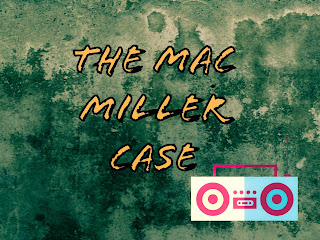Social Distortion and the American Juvenile Justice System
Antiquity in the United
States has become a pattern that is commonly utilized in order to achieve
particular goals and systematic accomplishments. Specifically, the American youth has been
part of these goals and accomplishments, and thus forced to endure outrageous
discourses of punishment and rehabilitation.
The United States’ foundation is based on principles of liberty and
justice, yet justice and freedom has not been delivered to the juveniles who, unfortunately, commit crimes or other malum in se activities. Moreover, the administration of justice
toward these not fully developed people has fostered a regression to chaotic
and bitter cultures in the particular country.
Labeling theories and other criminological notions convey these
occurrences, yet the problem of horrific juvenile-related legal interventions
still persists in the United States.
In the United States,
many juveniles who enter the dysfunctional juvenile justice system end up
becoming adult offenders which, in turn, somewhat suggests that the youths’
legal system is a drafting system for the adult criminal justice system that is
similar to recruiting players for a professional sports team. Second to this, many organizations and
independent good-natured people pick up the pieces once a child encounters the
psychological mess that we call the juvenile justice system. That is, many non-profit organizations or
foster families take on the burdens that should have never occurred or,
more importantly, the justice system should have resolved once a child entered
its contrivances. Poor parenting or improper
guidance for a child is a slippery slope when having the best interest in the
child in mind, yet the ability of the juvenile justice system to break-up
families also seems to cause more terrible residual effects and mostly puts the
blame on the youths who are processed into the particular legal system. More specifically, the juvenile justice
system operates on a proclivity that emphasizes justice for those who are
legally unable to make responsible decisions and thus contradicts the illustrations
of having a “best interest of the child” philosophy in mind.
Furthermore, the societal
interpretations of justice in this country have embedded an unusual discourse
that has permeated into a concoction of distorted individualism. That discourse is a combination of subjugated
perceptions that stem from capitalism and the desire to be unique in the United
States – a form of conflict theory. The
aforementioned uniqueness comes in various fashions and becomes narrowed down
when discussing specific elements within our society. That is, and regarding the juvenile
justice system, many ideologies are assumed by relegation of the national and
local media outlets, fear that arises from these media devices and the
communication that follows such media-related observations, public and personal
morals, and historical incidences that are relevant to current situations. This divulges the massive amount of
social distortion and individualism that has occurred in the United States and
how the American juveniles who enter the legal system are thrown to the wayside
in some respect, as well as why the issues that cause these dilemmas are not
resolved.


Comments
Post a Comment